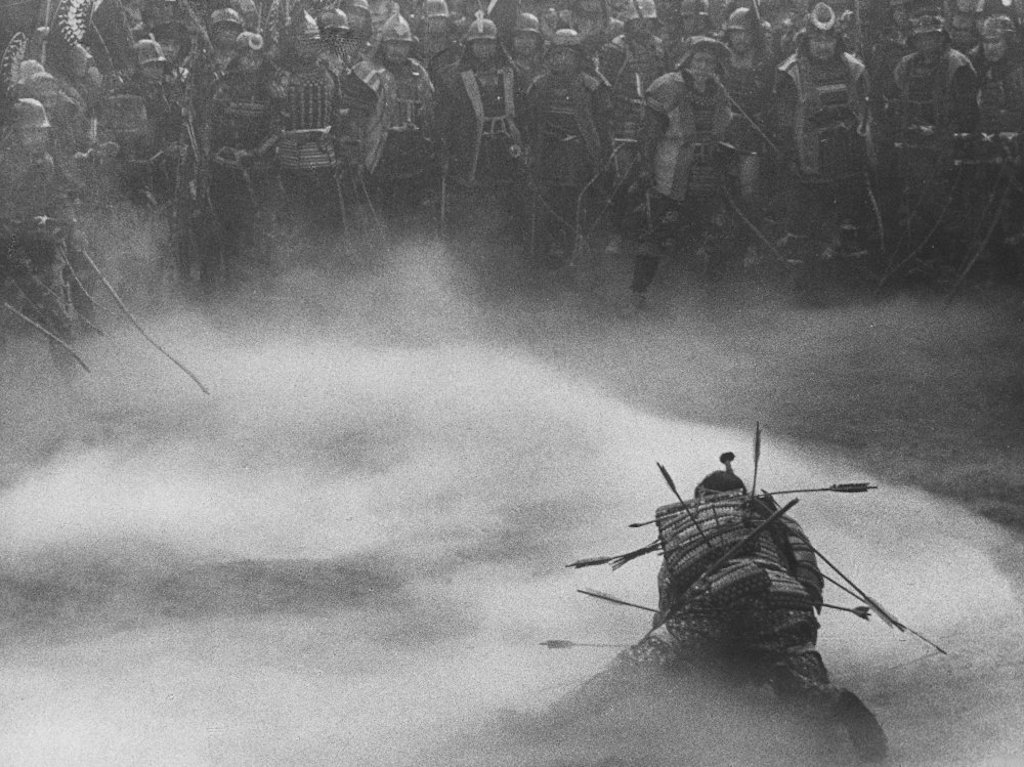In his Criterion commentary on Laurence Olivier’s Henry V, from 1944, film historian Bruce Eder proclaims this the first successful attempt to bring a Shakespeare play to the silver screen. “Up until its release, film adaptations of Shakespeare had succeeded neither as Shakespeare, nor as films,” Eder intones. “Olivier’s was the first to succeed on both counts.” He goes on, reasonably enough, to decry all earlier efforts as hampered by awe, and “respectful to the point of cold sterility.”
Wait, what? Had Eder not seen Max Reinhardt’s glittery A Midsummer Night’s Dream, from 1935, with the little moonlight-kissed Mickey Rooney, the spastic James Cagney, the eager Olivia de Havilland—not to mention the immortal music of Felix Mendelssohn? Or how about that silent German production of Hamlet (subtitled “The Drama of VENGEANCE”) from 1920? That’s the one that ends with the brooding Dane’s grief-stricken pal Horatio copping a feel of his friend’s fresh corpse, only to announce, “Death reveals thy tragic secret!” Namely, that Hamlet was a girl.
Granted, these films do have their limitations. Neither title cards nor Warner Brothers production budgets do much justice to the nuance of Shakespeare’s poetry, for instance. But they also rebuke the logic of Eder’s introductory assertion. As if England’s national history and myth were the Bard’s personal property, and solely his invention. As if Olivier’s admittedly rich and marvelous directorial debut weren’t only one element in an enduring cultural continuum.

After Olivier’s Henry V, to be sure, the gates were open; we have no shortage now of Shakespeare films (with still more ever on the way), subject to the full range of cinematic adaptation techniques. Classics are classics because they’re worth revisiting. So you ask yourself: Is Baz Luhrmann’s Romeo + Juliet, the one with Leonardo DiCaprio and Claire Danes, as bananas as you remember? Is Kurosawa’s Throne of Blood as essential? The answer is of course.
Which should not imply any foreclosure of discoveries, rhapsodies and abstractions. Try Aki Kaurismäki’s black-comedy Hamlet Goes Business; or the intellectually impish King Lear written by Norman Mailer and directed by Jean-Luc Godard; or Derek Jarman’s The Angelic Conversation, in which a reverby Judi Dench reads the sonnets over homo-erotic Super-8 home movies; or Orson Welles’ Chimes at Midnight, a biographical interrogation of that deliciously Shakespearean recurring character, Sir John Falstaff.
Try them all, actually, and then keep going—toward, say, Polanski’s Macbeth, or Peter Greenaway’s Prospero’s Books, or the classic Cole Porter musical Kiss Me, Kate. Check your findings against whatever the younger you once scrawled in the margins of those now yellowing Signet Classics. And do it as the master himself might suggest: “with pomp, with triumph, and with reveling.”



